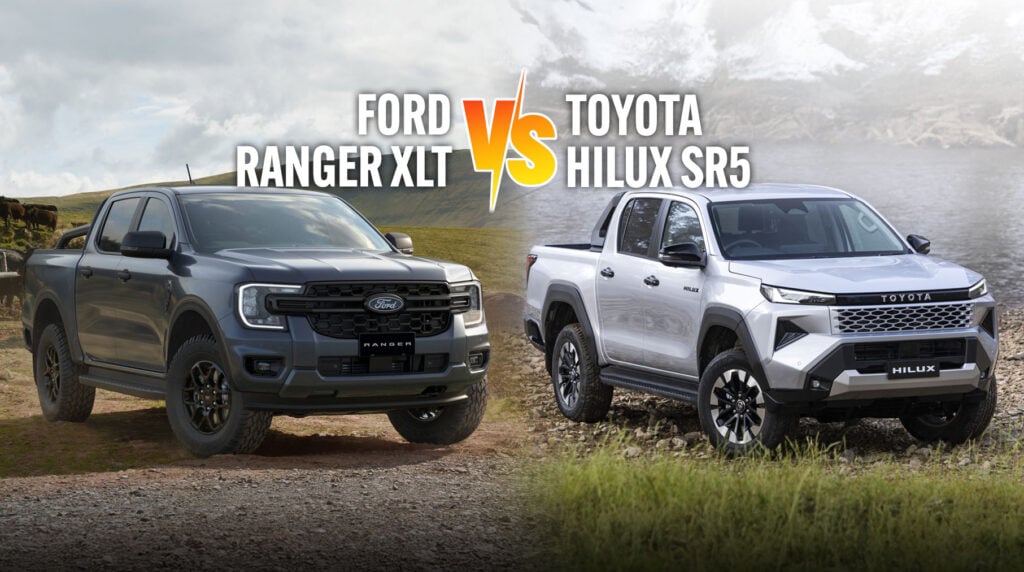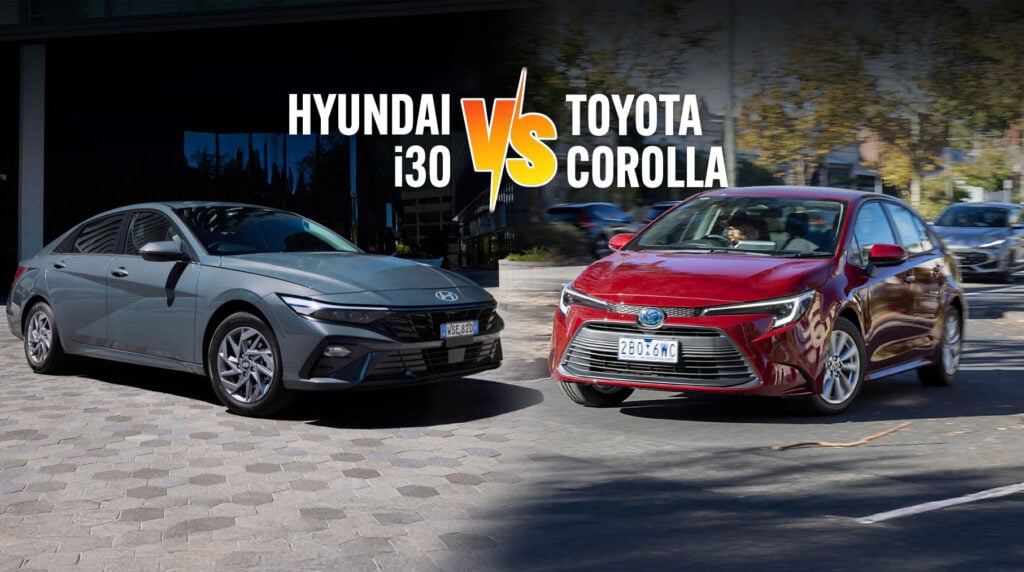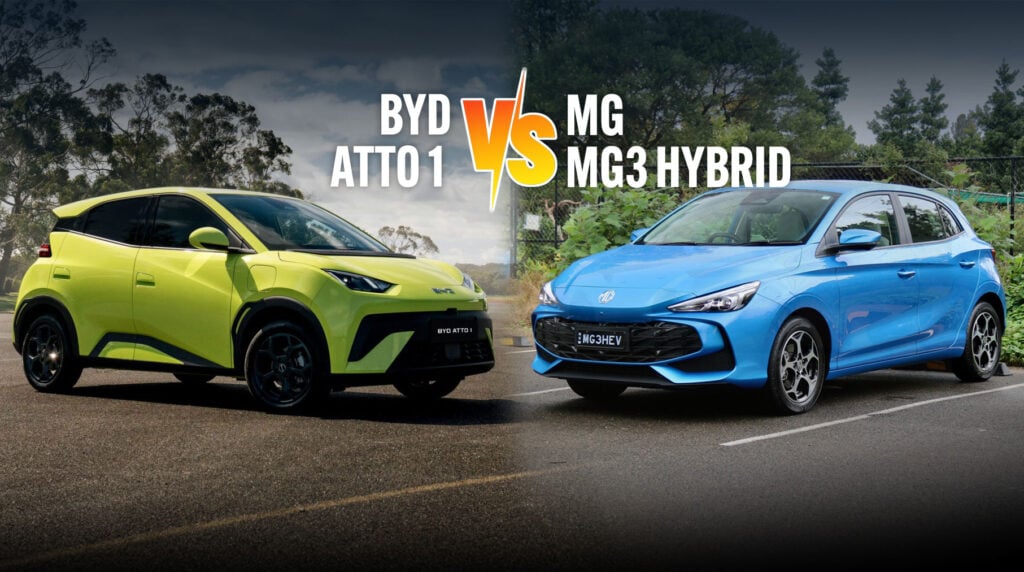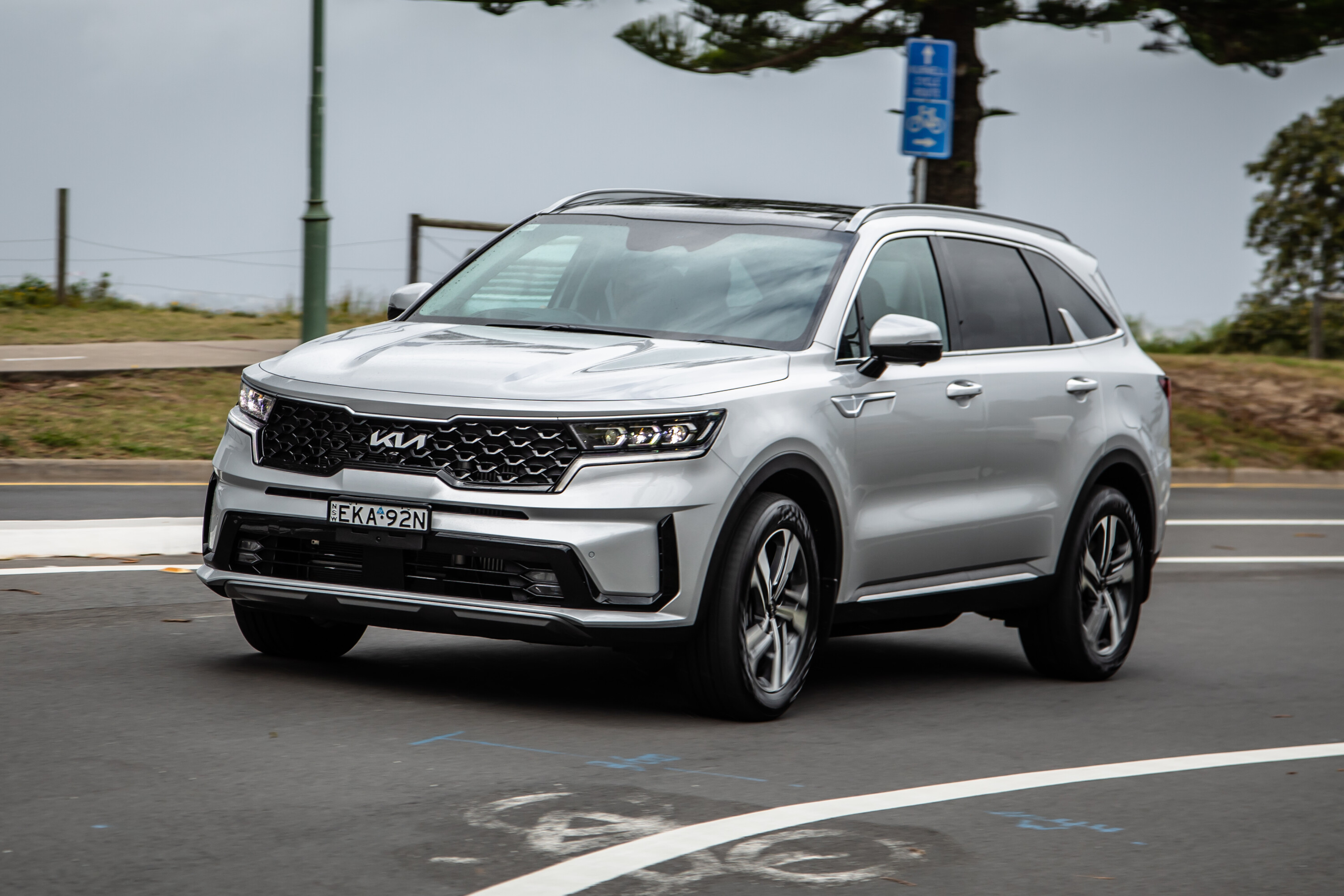
Read below for a quick side-by-side comparison of two of Australia’s most popular three-row SUVs, the Kia Sorento and Hyundai Santa Fe.
In base trim, you can get your hands on seating for seven and a solid drive in either camp for under $50K, with premium models able to justify their circa-$70K price tags.
Both offer excellent driving experiences, with the Sorento erring on the sporty side for handling and the Sante Fe majoring on maximum long-range comfort.
- Body styles
- Comfort & Practicality
- Boot space
- Safety
- Warranty & Servicing
- Verdict – Kia Sorento
- Verdict – Hyundai Santa Fe
- Specifications
Body styles
Kia Sorento
The Kia Sorento is a five-door, seven-seat SUV. Available in various combinations of front- and all-wheel drive, there are also hybrid and plug-in hybrid models available.
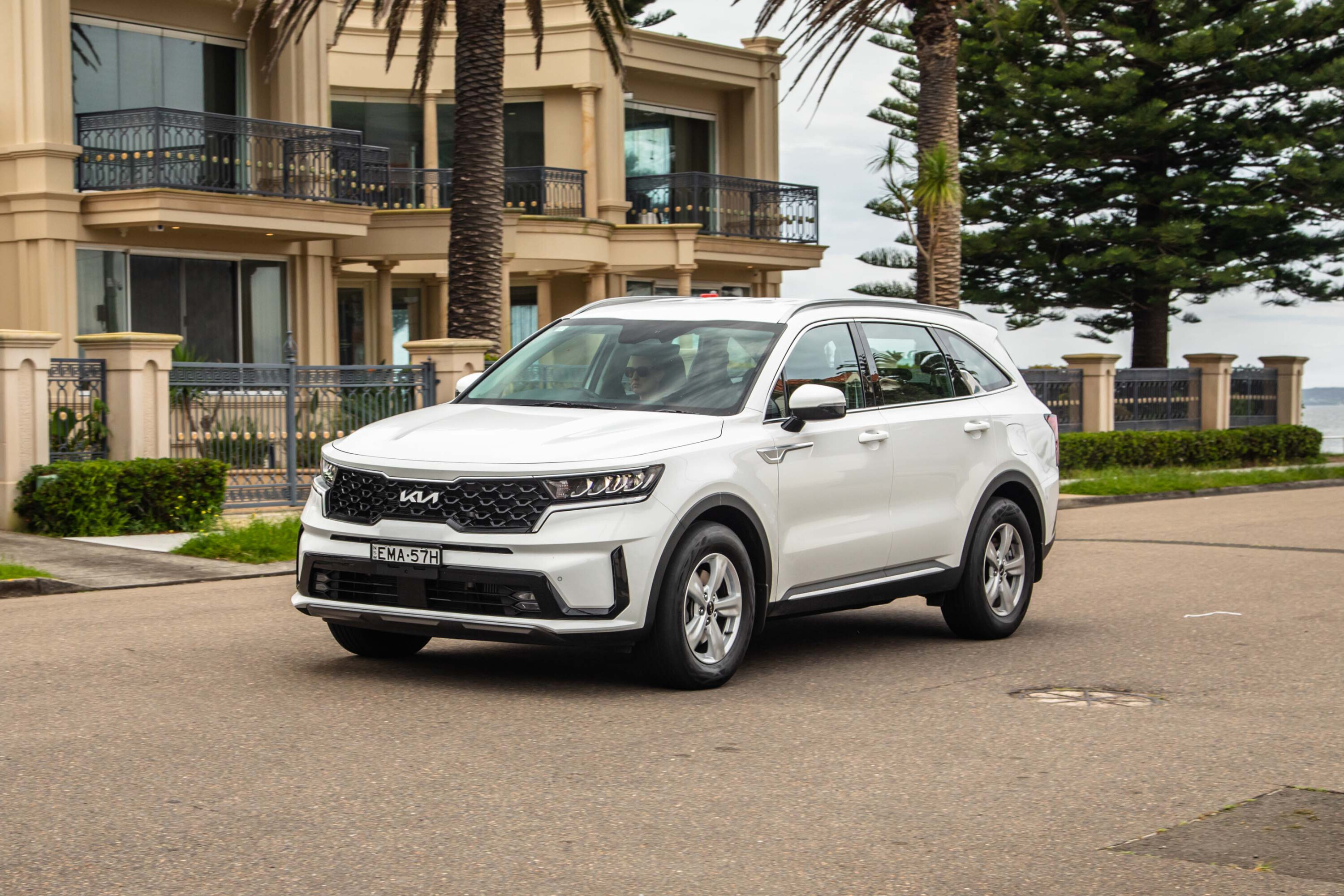
Hyundai Santa Fe
While the Sorento is seven-seat only, the Santa Fe Highlander is available in six-seat guise with no price premium. It is also a five-door, three-row SUV with hybrid a powertrain available.
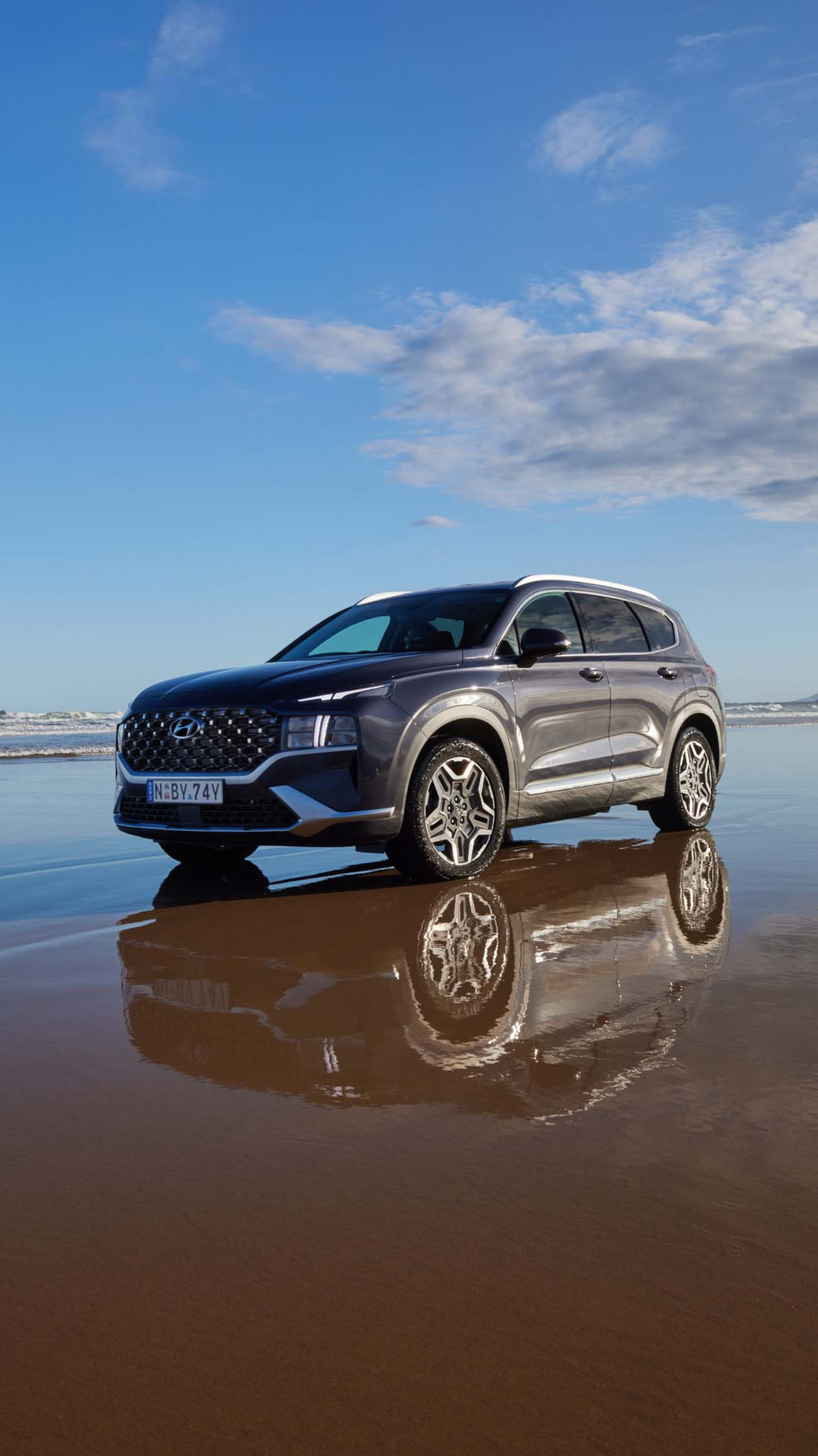
Comfort & Practicality
Kia Sorento
The Kia Sorento is a spacious family SUV with a high-set commanding driving position. Back seat space is excellent in the second row and, while the third row isn’t great for six-foot-plus adults, they will fit.
Among the Sorento’s many thoughtful cabin touches are a total of 12 beverage holders, generous door pockets, a total of eight USB ports to keep devices charged and the rare inclusion of ISOFIX child seat anchors in both the second and third rows.
There’s a hint of modern chic with knurled art deco-inspired HVAC controls and an airy vertical cabin design layout.
Higher-spec models are fitted with seat heating, seat ventilation, leather upholstery, integrated sun blinds, and generous 10.25-inch infotainment touchscreens.
Learn more about the Kia Sorento’s comfort and practicality in our range review.
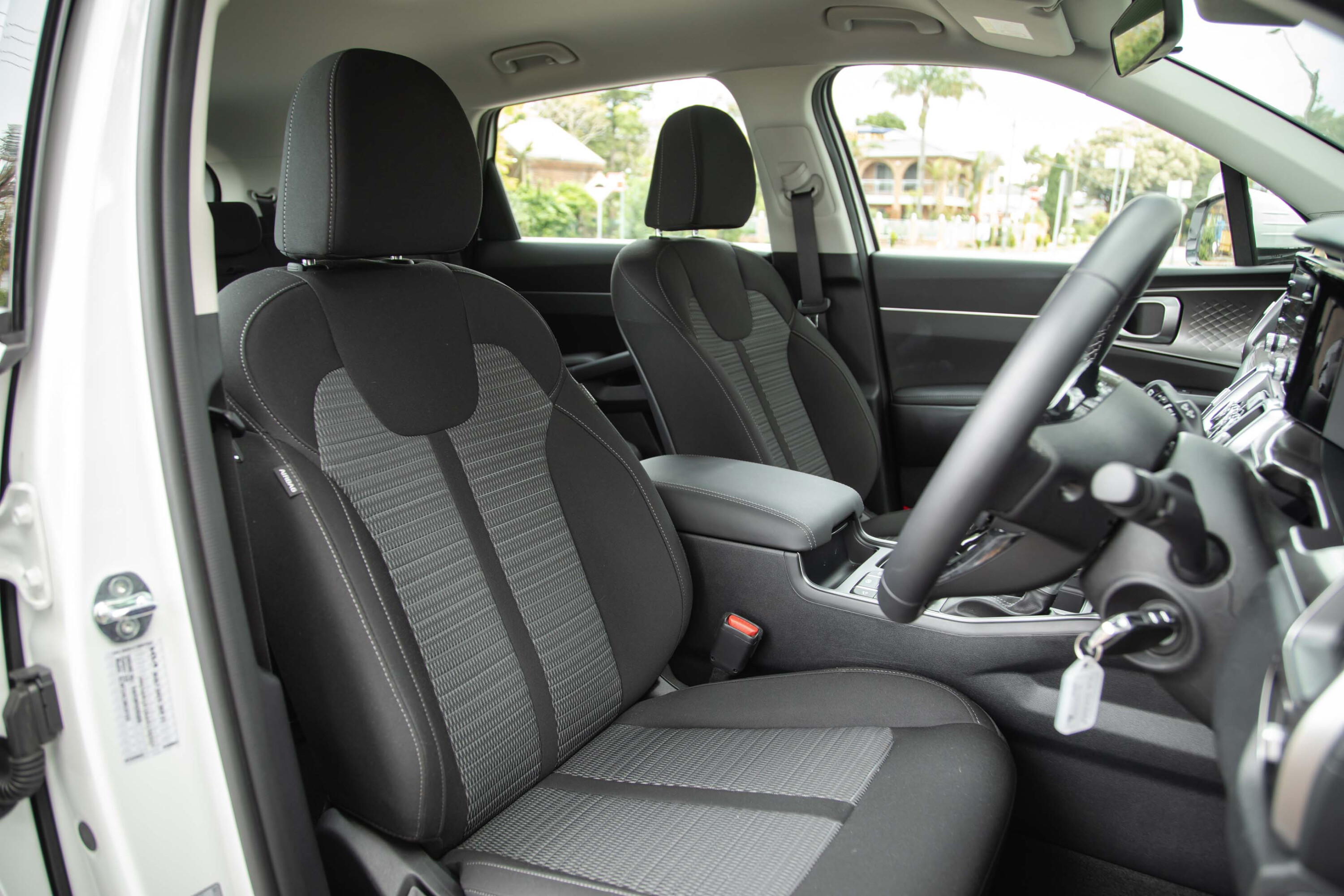
Hyundai Santa Fe
A little shorter than the Sorento, Hyundai’s Santa Fe has a more conservative interior design aligned with more typical luxury leanings.
You’re sunk a little lower in the front seats and while the second row still has plenty of space, the Santa Fe’s third row is a little tighter and doesn’t feature ISOFIX or top tether child seat attachment points.
With only five USB ports and eight beverage holders, the Santa Fe isn’t as practical on the surface, but front seat incidental storage is marginally better thanks to the flying bridge centre console obliged by the button-type gear shift.
Our experiences with the Santa Fe suggest sturdier build quality than the Kia Sorento, too – you can read more about the Hyundai Santa Fe in our range review.
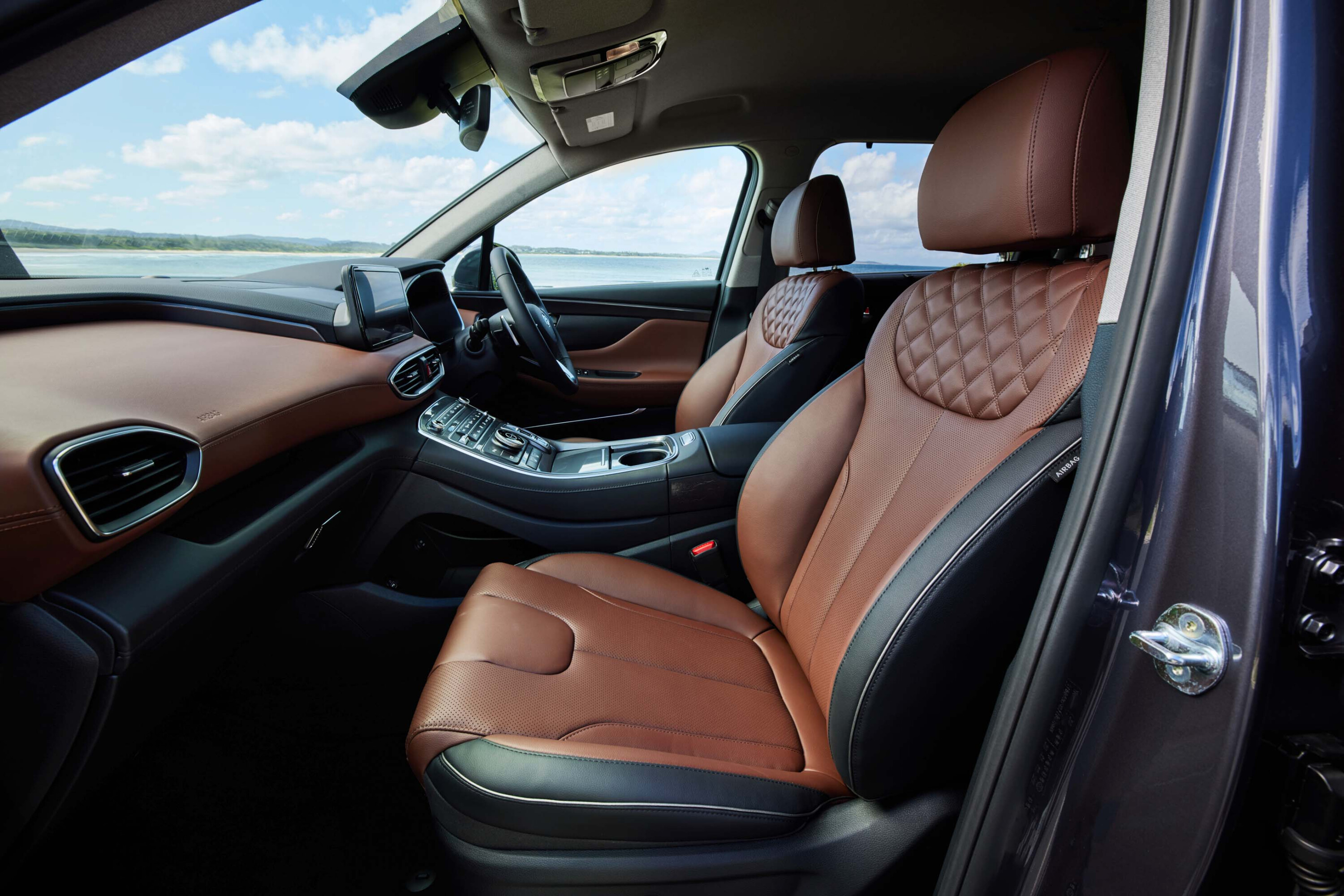
Boot space
Kia Sorento
With 616 litres of boot space with two seating rows up, the Sorento is generous in cargo capacity terms. Even with all three in play, there’s still space for school bags and the like (187L). A 60:40 split-fold second-row backrest allows bulky items to fit with ease.
Practicalities abound with a 12-volt outlet, wet storage bin, buttons to fold the second row, a speedy power tailgate, and full-size spare hung under the vehicle.
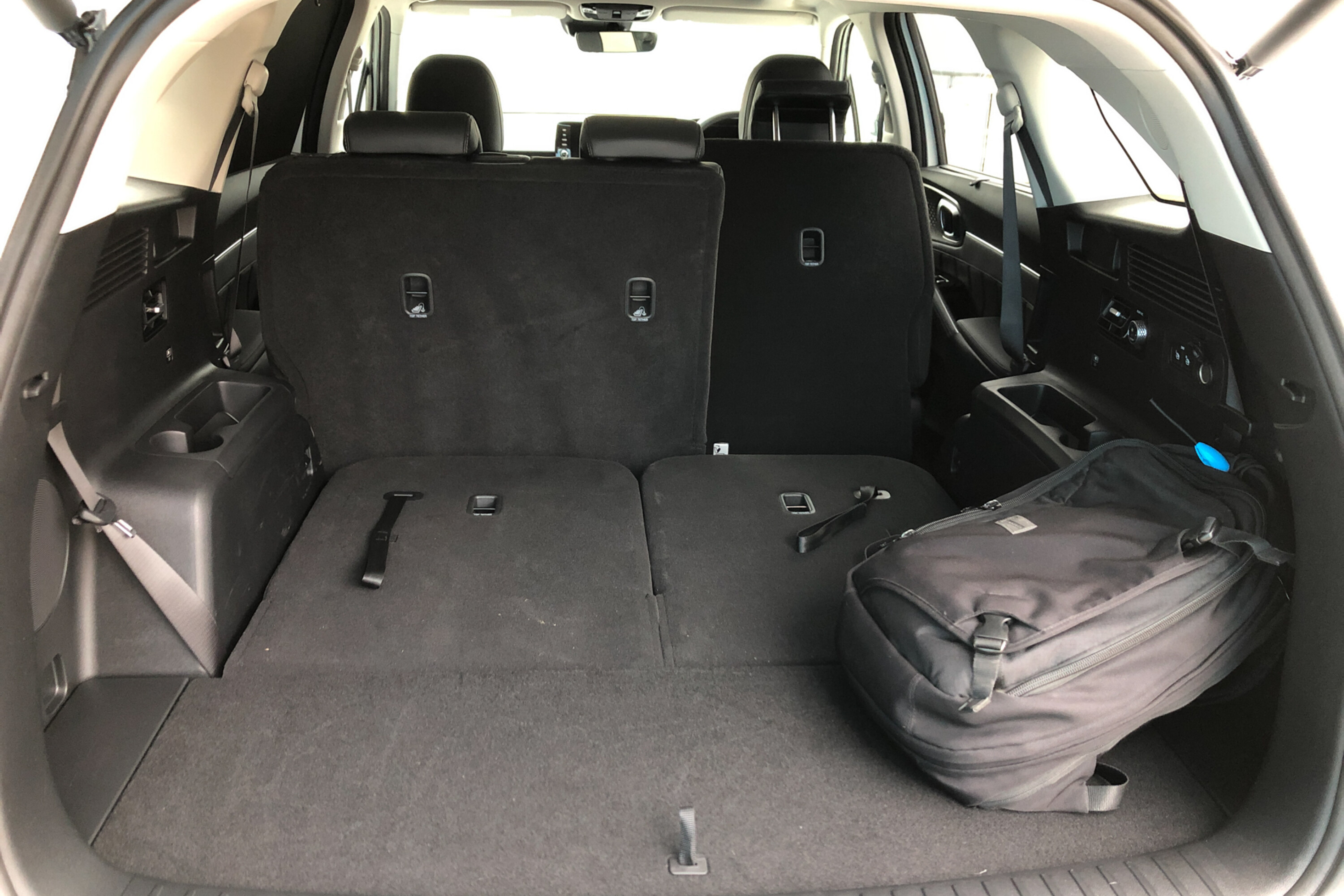
Hyundai Santa Fe
With three rows in play, the Santa Fe’s 130L cargo space is paltry, but fold the rearmost two and capacity swells to between 571L-782L depending on the position of the sliding second-row. The Hyundai shares its helpful amenities (wet storage, 60:40 split-fold second-row seats and full-size spare) with the Sorento.
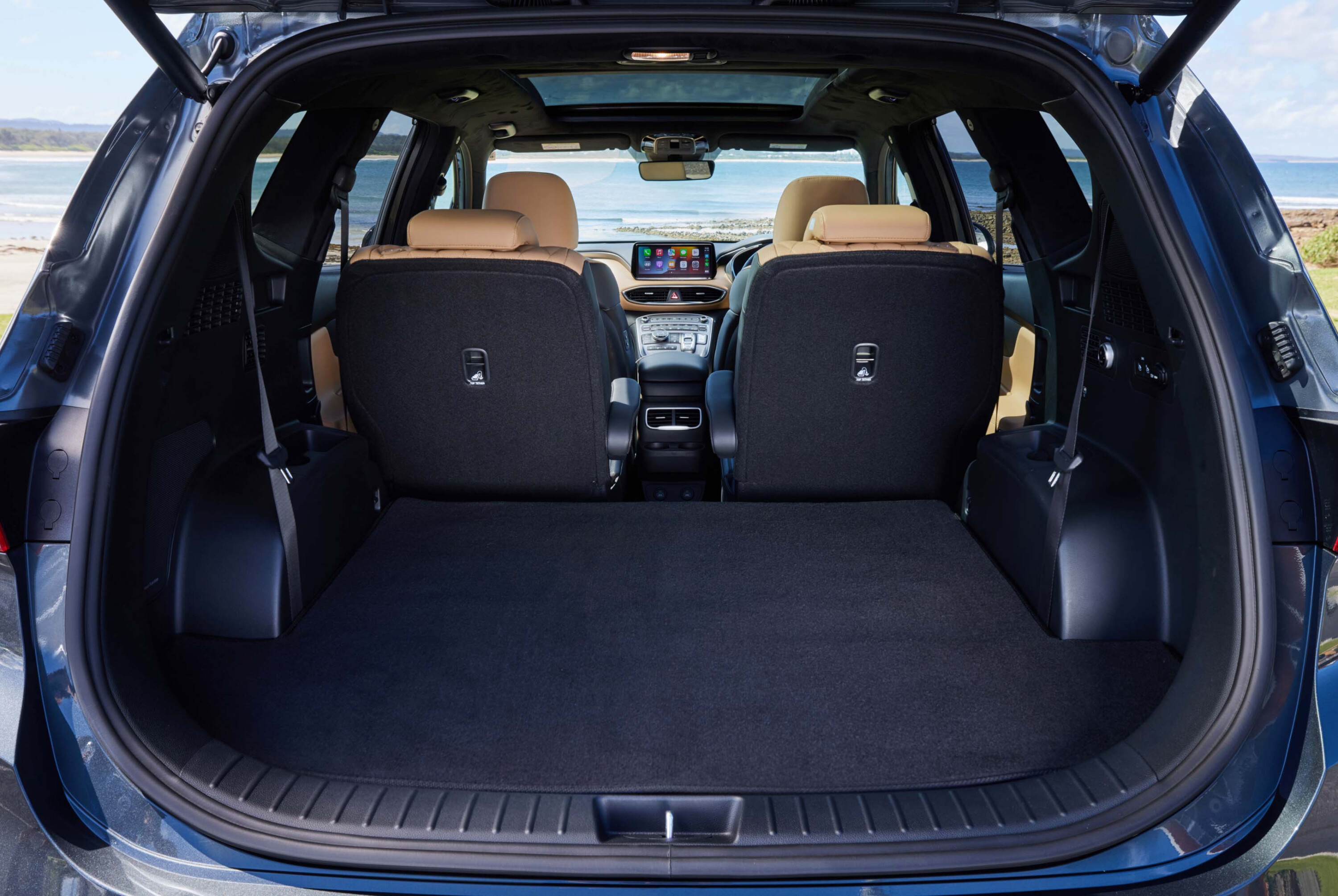
Safety
Kia Sorento
The Kia Sorento received a five-star ANCAP rating in July 2020. The rating applies to all variants, including both types of hybrid.
Standard safety features include eight airbags, auto emergency braking (AEB), adaptive cruise control, driver attention monitoring and more.
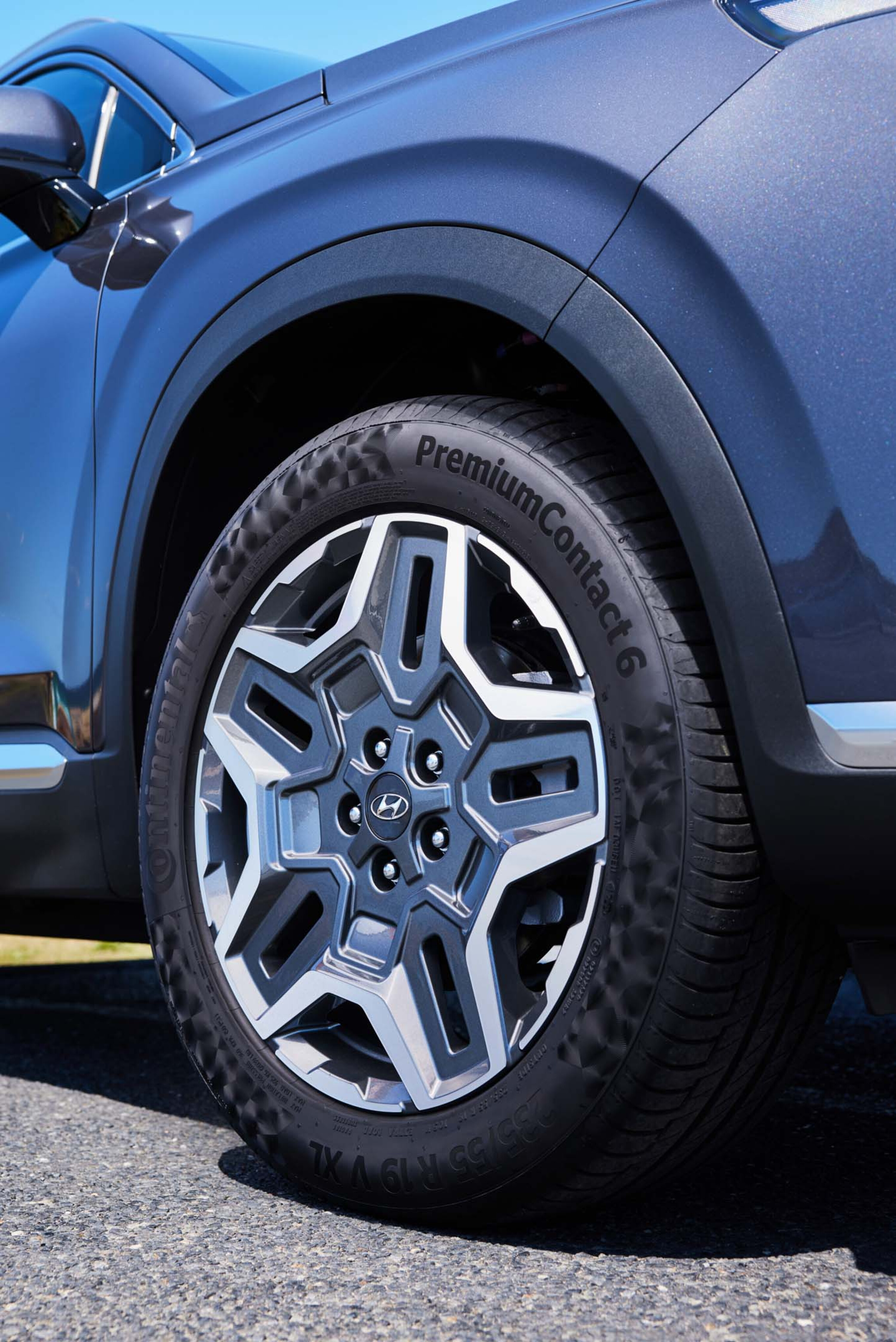
Hyundai Santa Fe
The Santa Fe achieved five ANCAP stars in July 2018, though a mid-life update brought its standard safety spec up to Kia Sorento levels thanks to the addition of a centre airbag and improved AEB.
Unlike the Sorento, hybrid variants of the Santa Fe are considered unrated by ANCAP.
Warranty & Servicing
Kia Sorento
Kia’s seven-year/unlimited-kilometre warranty may no longer be industry-leading on paper, but with few exclusions and a generous dealer network, there’s precious little to fret about.
Servicing is due annually for all powertrains, with petrol and diesels able to travel 15,000km between seeing spanners and the hybrid variants a shorter 10,000km.
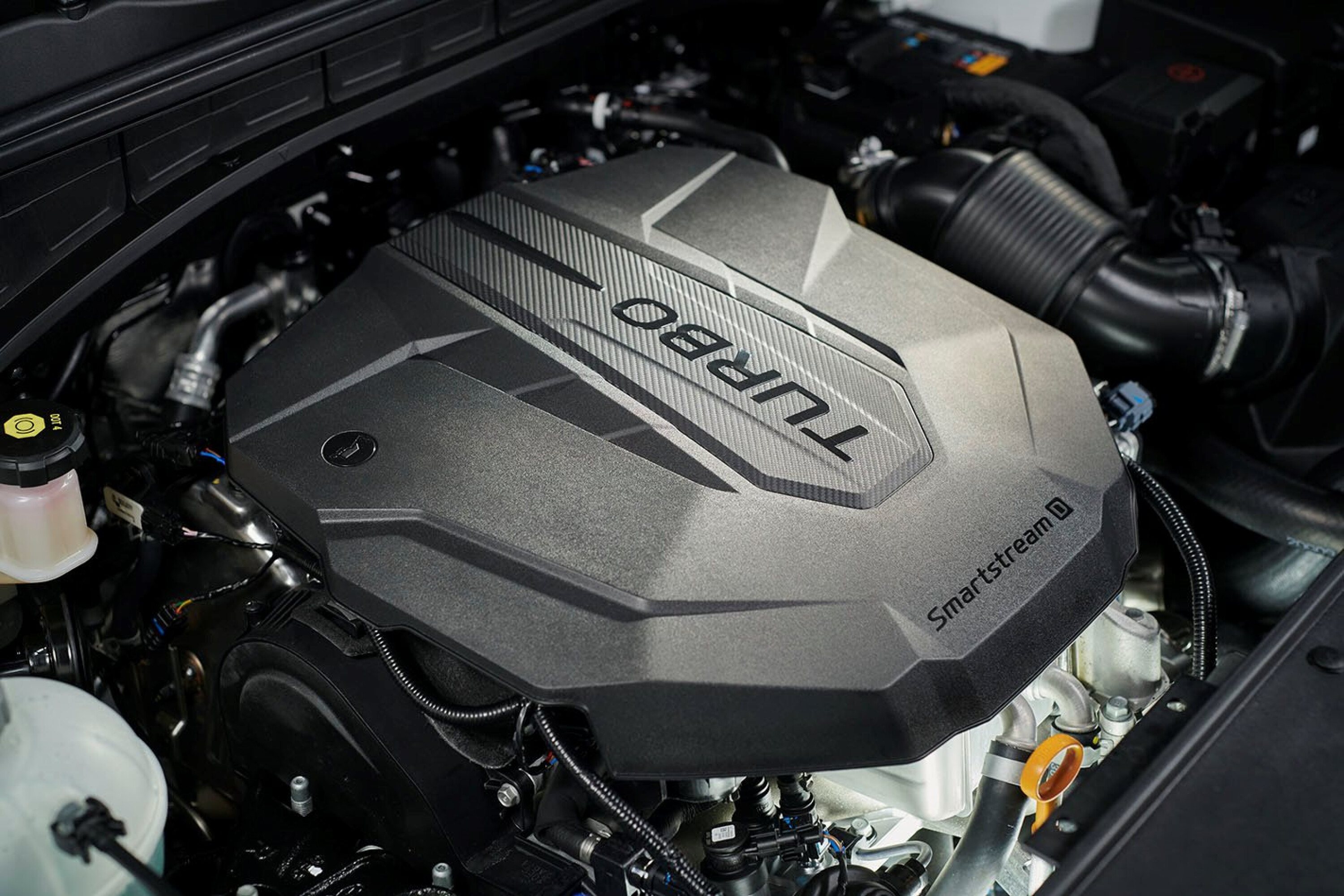
Hyundai Santa Fe
Hyundai’s warranty lags slightly behind at five years/unlimited kilometres, but Hyundai’s engines and infotainment have proven relatively reliable over the Santa Fe’s five-year life.
Like the Sorento, Santa Fe servicing is due annually or at 15,000km intervals for petrol and diesel, or 10,000km for the hybrid.
Verdict – Kia Sorento
Things we like
- Brilliant cabin packaging
- Secure and unflappable dynamics
- Stylish looks inside and out
- Great technology package
- Long and trusted warranty
Not so much
- Ride can be a little jiggly in upper trims
- Some cheap, scratchy plastics
- Hybrid stock is hard to come by
- Thirsty petrol V6
Verdict – Hyundai Santa Fe
Things we like
- Comfortable and relaxed ride
- Buttons make changing settings easy
- Cabin refinement and presentation
- More choice of hybrid variants
Not so much
- No top tether/ISOFIX anchors in third row
- Small boot with three rows up
- ESC can be overzealous
- Petrol V6 drinks lots of fuel


